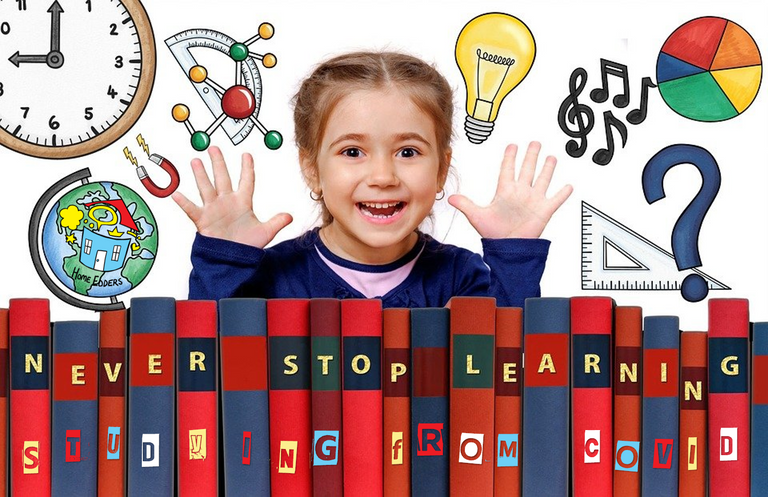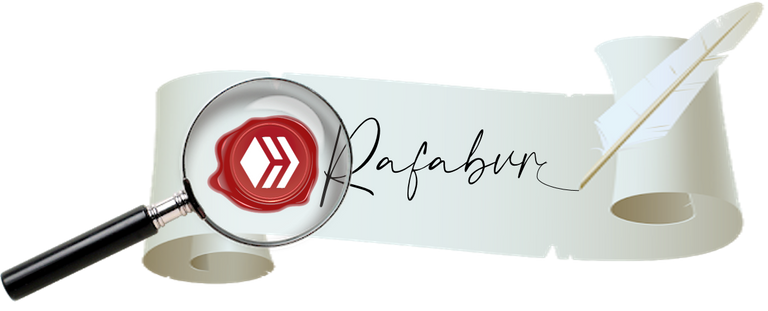[ENG-SPN] New ways of learning and teaching from the pandemic


A few days ago I was chatting with my students and I told them that we were living a historic moment, that we were not going to forget these days. And one of them said to me:
"Teacher, I want to live a historic moment, but a good one".
I give private lessons at home, and I feel that the pandemic has forced us into a kind of global educational experiment that is forcing us, without wanting to, to explore what happens in a hyperconnected world in which we cannot go to physical school. I've been thinking about that a lot these days.
Is there something we can learn from this educational scenario that we did not choose? I think so, that we are learning some important things. And I would like to share three of those ideas that I have been thinking about these days and that hopefully will help us to continue thinking about education from now on.
The first one is that, for the first time, all of us teachers together have the urgency to try new ways of teaching. Innovation in education is something we have been talking about for a long time, but until now it has been happening in isolation, separately. And from one day to the next, we all, simultaneously, had to help each other to take a huge step forward. With a lot of effort and forced by the emergency, those of us who are dedicated to teaching are having to redesign our distance classes and in this process we are daring to try new ways of doing things.
Hace unos días charlaba con mis alumnos y les decía que estábamos viviendo un momento histórico, que no nos íbamos a olvidar de estos días. Y uno de ellos me dijo:
"Profe, yo quiero vivir un momento histórico, pero de los buenos".
Me dedico a dar clases particulares a domicilio, y siento que la pandemia nos metió a la fuerza en una especie de experimento educativo global que nos está obligando, sin querer, a explorar qué pasa en un mundo hiperconectado en el que no podemos ir a la escuela física. En estos días vengo pensando mucho sobre eso.
¿Habrá algo que podamos aprender de este escenario educativo que no elegimos? Yo creo que sí, que estamos aprendiendo algunas cosas importantes. Y me gustaría compartir tres de esas ideas que me andan dando vueltas en estos días y que ojalá en una de esas nos sirvan para seguir pensando en la educación de acá en adelante.
La primera es que, por primera vez, todos y todas los docentes juntos, tenemos la urgencia de animarnos a probar nuevas maneras de enseñar. La innovación en educación es algo de lo que se viene hablando hace rato, pero que hasta ahora venía sucediendo aisladamente, por separado. Y de un día para otro, todos, en simultáneo, nos tuvimos que ayudar a dar un enorme paso. Con mucho esfuerzo y obligados por la emergencia, quienes nos dedicamos a enseñar estamos teniendo que rediseñar nuestras clases a distancia y en ese proceso nos estamos animando a ensayar nuevas maneras de hacer las cosas.

And for that we realized that we did not have to reinvent the wheel, that there were many things that were already available but that we had never had until now the urgency, the imperative need to use. Videos, tutorials, online books, remote learning platforms, social networks, emails, video calls, whatever it takes to keep teaching and especially to stay connected with students, with families, which these days is so very, very important.
The good news in the midst of all this, I think, is that once we try them, we use them, those strategies become ours, they become part of what we know how to do, of our toolbox. And, little by little, in the midst of the frustration that comes with having to adapt so quickly, even trying to be patient, to pamper ourselves when things don't go so well, because we are also learning, we start to enjoy trying new ways of teaching and learning. And this is not only happening in the formal system, today teachers of all kinds are teaching online what they know. From yoga classes to knitting workshops, even people with a vocation to teach are being encouraged to do so. We are learning in community.
The second reflection of these days is that we are seeing what happens when we radically change how we use time to learn. In a discussion I had with my students a few weeks ago, I was asking them to imagine the ideal school, and there was something that came up again and again. The boys and girls would always tell me that the school they dreamed of had room, at least in part, to choose what to learn, when and how. And suddenly today, from one day to the next, that's happening.
Y para eso nos dimos cuenta de que no había que reinventar la rueda, que había muchas cosas que ya estaban ahí disponibles pero que nunca habíamos tenido hasta ahora la urgencia, la imperiosa necesidad de usar. Videos, tutoriales, libros en línea, plataformas de aprendizaje remoto, redes sociales, mails, videollamadas, lo que sea que nos vaya dando resultado para seguir enseñando y especialmente para seguir conectados con los alumnos, con las familias, que en estos días es tan pero tan importante.
La buena noticia en medio de todo esto, creo yo, es que una vez que las probamos, las usamos, esas estrategias ya empiezan a ser nuestras, ya empiezan a formar parte de lo que sabemos hacer, de nuestra caja de herramientas. Y, de a poco, en medio de la frustración que trae tener que adaptarse tan rápido incluso tratando de tenernos paciencia, hacernos un mimo cuando las cosas no nos salen tan bien, porque nosotros también estamos aprendiendo, le vamos agarrando el gustito a probar nuevos modos de enseñar y aprender. Y esto no solo está pasando en el sistema formal, hoy profesores y profesoras de todo tipo están enseñando en línea lo que saben. Desde clases de yoga hasta talleres de tejido, Incluso gente con vocación de enseñar se está animando a hacerlo. Estamos aprendiendo en comunidad.
La segunda reflexión de estos días es que estamos viendo qué sucede cuando cambiamos radicalmente cómo usamos el tiempo para aprender. En un debate que hice con mis estudiantes hace unas semanas atrás, les pedía que imaginaran la escuela ideal, y hubo algo que apareció una y otra vez. Los chicos y las chicas me decían siempre que la escuela que soñaban tenía un espacio, al menos en parte, para elegir qué aprender, cuándo y cómo. Y de repente hoy, de un día para otro, eso está pasando.

These days many families began to realize that many times children, especially when they are teenagers, learn better when they manage to organize their own time. Some study more at night, others start with the subjects they are most interested in, others connect with their classmates to do their homework, or look for videos on the web to finish understanding something they are not able to understand, or to learn something new they wanted to learn. And this also helps us to think about education from here on, because it makes us see that these moments of autonomy of the children can be combined with other instances in which we are all working together.
It also tells us that in order for all boys and girls to be able to take advantage of those more autonomous moments, we have to teach them from a very young age to organize their time, to manage their tasks and everything that learning requires.
My last reflection is more of a question: What happens when, as it happens these days, we do not have the physical school as a place to go to? The quarantine is making us realize, but no longer in a theoretical, declarative way, but in the skin, in the body, the value of the school and the enormous task that teachers are doing and do every day. When boys and girls cannot go to school, the need for it as a space that guarantees that everyone can learn appears stronger than ever. When we try to accompany our children in school tasks, I don't know if it is happening to them these days, we realize how difficult it is to be a good teacher.
This pandemic is making the differences between households more visible than ever. It's not just the one who has a computer and the one who doesn't, the one who has the internet and the one who doesn't. There is the one who has a quiet place to study and the one who does not, the one who has someone to ask and the one who does not, the one who has to do all the housework and the one who does not. The school, with all its difficulties, for a few hours a day at least, brackets these inequalities and helps all boys and girls to be protected and focused on learning.
As an educator I am very concerned about how this is going to continue, and I also wonder what is going to be left of what we are learning in this quarantine. My feeling these days is, did you see when the tide goes out and the beach is bare? Among all that is swept away by the tide, what it breaks, what it carries away, some treasures that were hidden also appear on the beach. I hope that although, as one of my students said, this historical moment is not at all a good one, it will help us to make those treasures we are finding our own, such as the desire to explore in community new ways of teaching, to rethink the use of time and ways of learning. And also, to realize how much we as a society need schools and teachers.
Today, the physical classrooms are closed but, in one of these, a door may be opening to continue building together, when all this happens, the education we dream of.
En estos días muchas familias empezaron a darse cuenta de que muchas veces los chicos, especialmente cuando son adolescentes, aprenden mejor cuando logran organizar sus propios tiempos. Algunos estudian más a la noche, otros empiezan por las materias que más les interesan, otros se conectan con los compañeros para hacer la tarea, o buscan videos en la web para terminar de entender algo que no les sale, o para aprender algo nuevo que tenían ganas. Y esto también nos ayuda a pensar en la educación desde acá hacia adelante, porque nos hace ver que esos momentos de autonomía de los chicos se pueden combinar con otras instancias en las que estamos todos juntos trabajando a la par.
También nos dice que para que todos los chicos y las chicas puedan aprovechar esos momentos más autónomos, tenemos que enseñarles desde bien chiquitos a organizar sus tiempos, a gestionar las tareas y todo lo que requiere aprender.
Mi última reflexión es más bien una pregunta: ¿Qué sucede cuando, como pasa en estos días, no tenemos la escuela física como un lugar a donde ir? La cuarentena está logrando que nos demos cuenta pero ya no de manera teórica, declarativa, sino en la piel, en el cuerpo, el valor de la escuela y de la enorme tarea que están haciendo y que hacen todos los días los docentes. Cuando los chicos y las chicas no pueden ir a la escuela, aparece más fuerte que nunca su necesidad como espacio que garantiza que todos puedan aprender. Cuando tratamos de acompañar a nuestros hijos en las tareas de la escuela, no sé si les está pasando en estos días, nos damos cuenta de lo difícil que es ser un buen maestro.
Esta pandemia está haciendo más visibles que nunca las diferencias entre los hogares. No es solo el que tiene computadora y el que no, el que tiene internet y el que no. Está el que tiene un lugar tranquilo para estudiar, y el que no, el que tiene a quién preguntar, y el que no, el que tiene que hacer todas las tareas del cuidado de la casa, y el que no. La escuela, con todas sus dificultades, durante unas horas al día por lo menos, pone entre paréntesis esas desigualdades y ayuda a que todos los chicos y las chicas estén protegidos y con el foco puesto en aprender.
Como educador me preocupa mucho cómo va a seguir todo esto, y también me pregunto qué va a quedar de lo que estamos aprendiendo en esta cuarentena. Mi sensación en estos días es, ¿Vieron cuando se va la marea y queda la playa desnuda? Entre todo lo que arrasa esa marea, lo que rompe, lo que se lleva, también sobre la playa aparecen algunos tesoros que estaban escondidos. Ojalá que aunque, como decía uno de mis alumnos, este momento histórico no sea para nada de los buenos, nos ayude a hacer propios esos tesoros que estamos encontrando, como son, las ganas de explorar en comunidad nuevas maneras de enseñar, replantearnos el uso de los tiempos y modos de aprender. Y también, darnos cuenta de cuánto necesitamos como sociedad de la escuela y de los docentes.
Hoy, las aulas físicas están cerradas pero, en una de esas, se esté abriendo una puerta para seguir construyendo entre todos, cuando todo esto pase, la educación que soñamos.


La alumna que te dijo que quiere vivir un momento histórico, ya lo esta viviendo , solo que no se da cuenta.
Espero que de las cosas positivas de la pandemia, quede el aprendizaje que no es necesario tener que ir aun lugar todos los días, con uniforme, para poder educarse. Al igual que no es necesario tener que ir todos los días a una oficina a trabajar. Existen trabajos donde no es necesario estar presenta 8 horas encerrado en una oficina.
No se de que país eres, pero Venezuela tiene un sistema educativo quebrado.
Muchos educadores se quedaron en la era analógica, tu que estas en blockchain y probando nuevas tecnologías, forma parte de un pequeño grupo de educadores que no se quedaron atrasados. Pero la gran mayoría si.
Entonces tenemos a profesores analógicos impartiéndole clases a niños y jóvenes digitales. Una primera gran falla.Se debería capacitar continuamente a los educadores, a medida que ocurren los avances tecnológicos, se deben renovar conocimientos y técnicas de impartir la educación. La mayoría no lo hace.
Volviendo a Venezuela, los maestros que no les pagan y cuyo sueldo es una miseria, algunos no tienen una buena PC o un buen smartphone, así que impartir las clases via online se les dificulta. Sumarle el gasto de datos e internet. ¿Se los paga el gobierno? No. Diosdi y Maduro, por ordenes de Raul Castro quieren que los profesores gasten lo que consiguen para alimentarse, en internet. Locos.Mientras ellos cada vez parecen unos marranos de lo gordo que están, porque les sobra billete.
Se debe también cambiar el programa educativo. ¿para que se educa en Venezuela? Durante décadas solo se enseña a ser esclavo del sistema, no se educa para que la persona tenga ideas propias, iniciativas propias, mente emprendedora. No. Se educa para que piense que solo debe tener un trabajo, ser empleado y mas nada. Ahora le agregaron adoctrinamiento cubano, peor están las cosas. estudiar para que? En cuba hay gente que los mandaron a universidades rusas o de cualquier país comunista de décadas pasadas, preparados, inteligente, rebuscándose la vida en la isla, estafando turistas y manejando una bicicleta. Porque ser prospero y tener dinero es malo, según los cubanochavistas
!ENGAGE 50
ENGAGEtokens.Una valiosa publicación que expresa lo que viven nuestros niños pero también familiares en esta situación. Gracias por compartir en el programa Encuentro de Talentos.
Buena vibra.
!ENGAGE 20
ENGAGEtokens.Con el apoyo de la familia.
Trail de TopFiveFamily